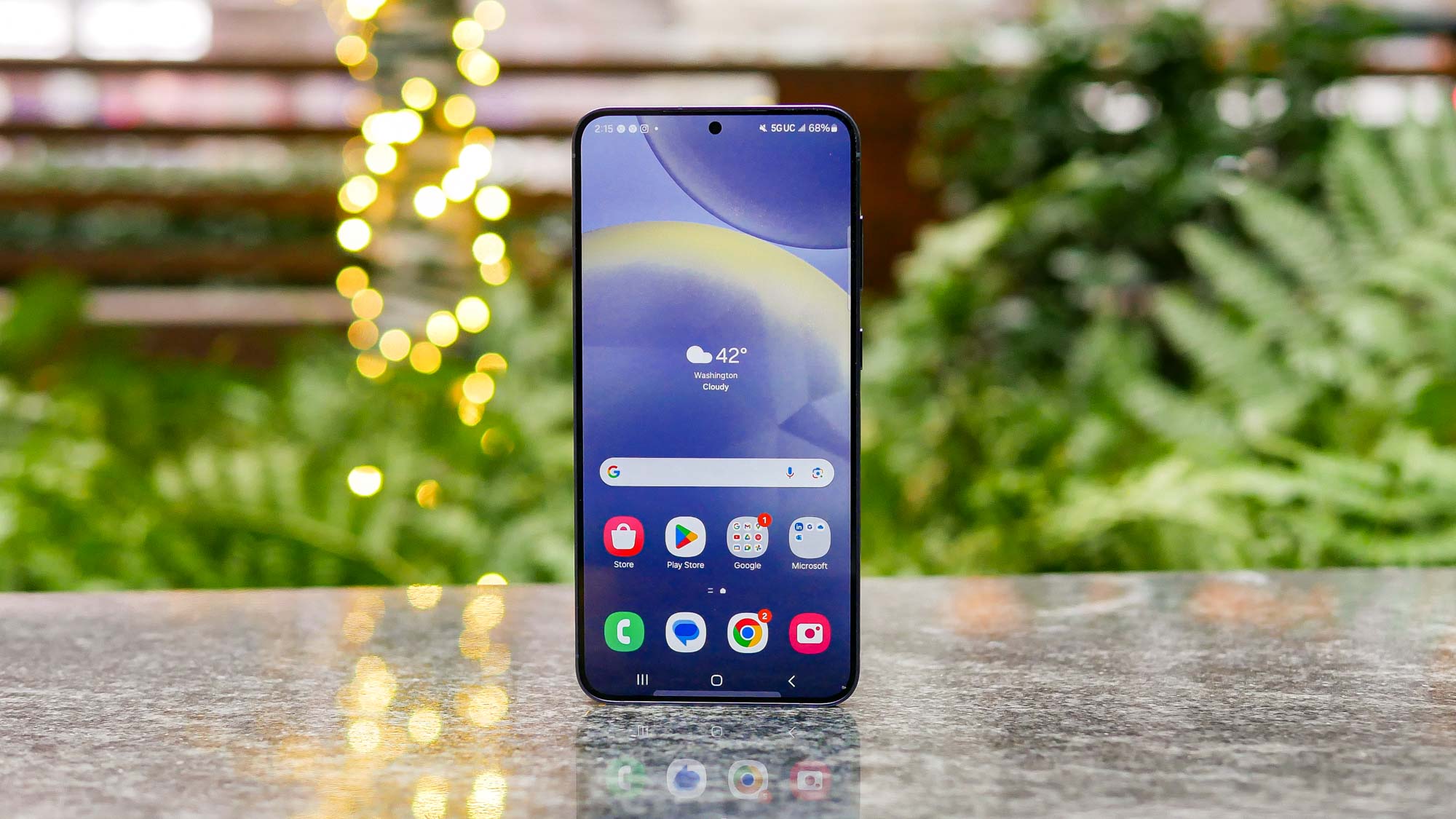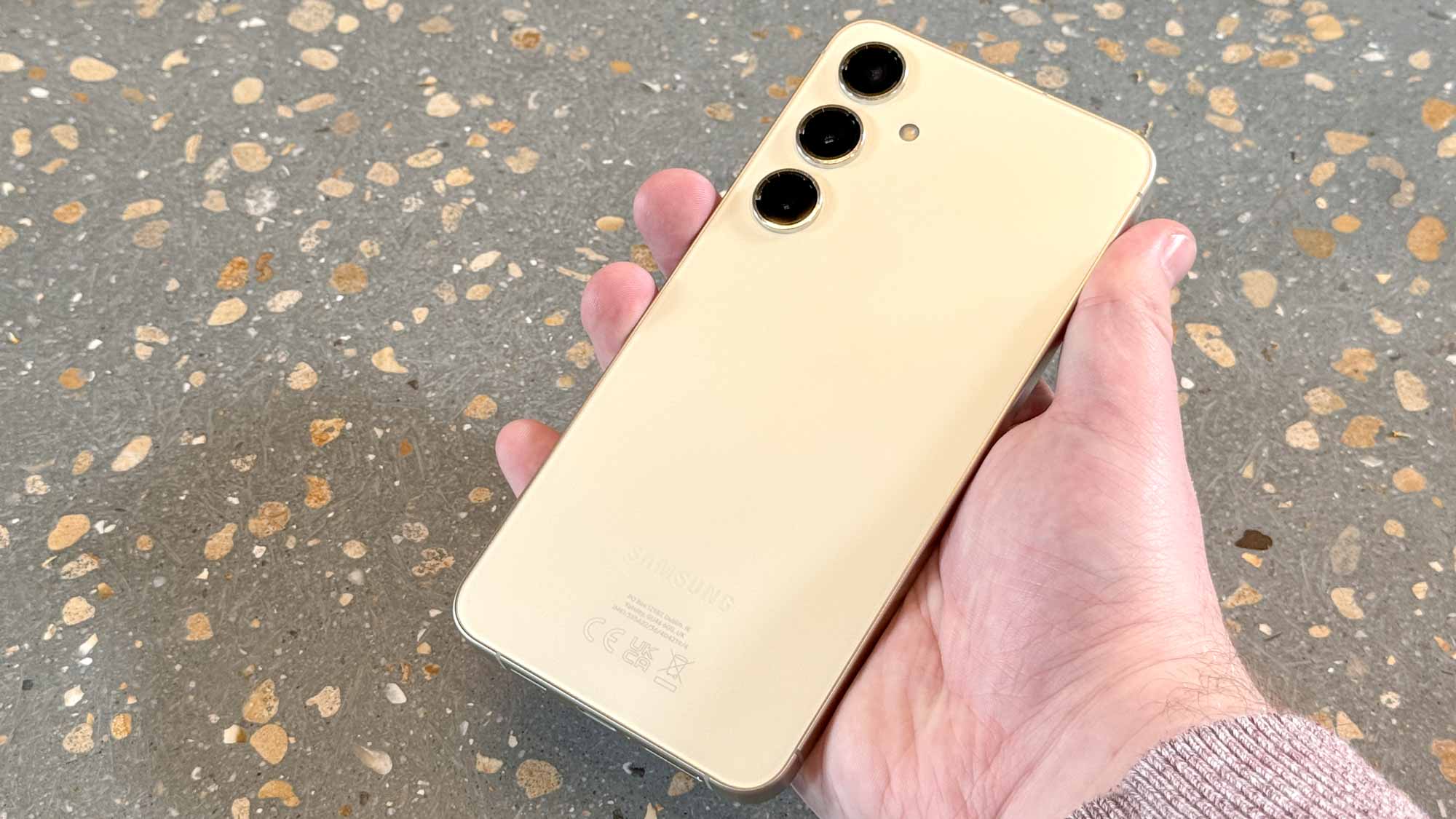Samsung made a big mistake with the Galaxy S24 — here's why
Galaxy S24 an S24 Plus models deliver different experiences, depending on where you live

Here at Tom’s Guide our expert editors are committed to bringing you the best news, reviews and guides to help you stay informed and ahead of the curve!
You are now subscribed
Your newsletter sign-up was successful
Want to add more newsletters?

Daily (Mon-Sun)
Tom's Guide Daily
Sign up to get the latest updates on all of your favorite content! From cutting-edge tech news and the hottest streaming buzz to unbeatable deals on the best products and in-depth reviews, we’ve got you covered.

Weekly on Thursday
Tom's AI Guide
Be AI savvy with your weekly newsletter summing up all the biggest AI news you need to know. Plus, analysis from our AI editor and tips on how to use the latest AI tools!

Weekly on Friday
Tom's iGuide
Unlock the vast world of Apple news straight to your inbox. With coverage on everything from exciting product launches to essential software updates, this is your go-to source for the latest updates on all the best Apple content.

Weekly on Monday
Tom's Streaming Guide
Our weekly newsletter is expertly crafted to immerse you in the world of streaming. Stay updated on the latest releases and our top recommendations across your favorite streaming platforms.
Join the club
Get full access to premium articles, exclusive features and a growing list of member rewards.
Try as you might, you can't argue with numbers. And the numbers from our Galaxy S24 benchmarks tell us that the versions of Samsung's flagship powered by the Exynos 2400 system-on-chip just aren't as fast as the ones using Qualcomm's Snapdragon 8 Gen 3.
Those results are very relevant if you happen to have bought either a Galaxy S24 or Galaxy S24 Plus — or if you're thinking about buying either one of the best Samsung phones. If you're in North America, you now know that the Samsung phones available to you are among the best-performing Android phones around, even giving Apple's iPhone 15 Pro models all they can handle. And if you're in Europe, the Galaxy S24 model you can buy is a step or two behind.
This kind of hair-splitting became necessary when Samsung decided to assign a different chipset to its Galaxy S24 and Galaxy S24 Plus models based on the whims of geography. (The premium Galaxy S24 Ultra sports the Snapdragon 8 Gen 3 no matter where in the world you buy it, suggesting that Samsung probably new which silicon was going to perform better.)
Reportedly, Samsung opted for the split chipset approach as a cost-saving measure. (The Snapdragon 8 Gen 3 is rumored to be pricey system-on-chip.) And while the move may have allowed the Galaxy S24 and Galaxy S24 Plus to hold on to their respective $799 and $999 starting prices, you'd have to conclude that from a user experience standpoint using different chips in the same phone feels like a mistake.
Breaking down the Galaxy S24 benchmarks
Diving a little deeper into the Galaxy S24 benchmark results illustrates why. When we ran Geekbench 6 on an Exynos 2400-powered S24 in the U.K. the phone posted single and multicore results of 2,147 and 6,738, respectively. The Snapdragon 8 Gen 3-based Galaxy S24 bested those numbers by 4% in the single core test and 3% in the multicore test. The diference was more stark in 3DMark's Wild Life Unlimited test for graphics, where the Snapdragon-based S24's 120 frames per second score was well ahead of the 91 fps result posted by the Exynos model.
| Row 0 - Cell 0 | Geekbench 6 (single/multicore) | 3DMark Wild Life Unlimited (FPS) |
| Samsung Galaxy S24 (Exynos 2400 | 2147 / 6738 | 91 |
| Samsung Galaxy S24 (Snapdragon 8 Gen 3) | 2235 / 6922 | 120 |
| iPhone 15 (A16 Bionic) | 2518 / 6179 | 72 |
| iPhone 15 Pro (A17 Pro) | 2890 / 7194 | 94 |
It's also worth comparing these results to the latest iPhones, especially since the Snapdragon 8 Gen 3-based Galaxy S24 made waves by besting Apple's handsets on some tests. Despite its lower overall numbers, the Exynos-based S24 still posts a multicore score on Geekbench 6 than the iPhone 15 running on an A16 Bionic chip, just like the Snapdragon S24 model did.
However, in graphics testing, there's a bit of a split. Either Galaxy S24 model tops the 72 fps score posted by the iPhone 15 in Wild Life Unlimited. But while the Snapdragon 8 Gen 3-based Galaxy S24 tops the iPhone 15 Pro's 94 fps score, the Exynos 2400 model does not. Here, the A17 Pro chipset powering Apple's Pro models packs a little bit more of a punch than the Exynos silicon.
Get instant access to breaking news, the hottest reviews, great deals and helpful tips.
You can argue whether these differences in score are going to translate to real world performance lags that a typical phone user is going to notice. But the larger point is a Galaxy S24 owner in Paris, France is getting a different experience than someone with the same phone in Paris, Texas. That's a weird situation in which to put customers paying $799 or more for one of your phones.
And it didn't have to be like this. You only need go back to a year ago when Samsung used the same Snapdragon 8 Gen 2 chipset in every Galaxy S23 model shipped around the world. That was one of the things that made the S23 lineup such a successful one, at least from my perspective.
Chipsets in future Samsung flagships

Samsung's approach to chipsets is especially relevant given how it could influence upcoming phone releases. You'd imagine the two foldables slated to come out this summer — the Galaxy Z Fold 6 and Galaxy Z Flip 6 — will feature the same silicon regardless of where they ship, as Samsung has never used multiple chipsets in either foldable. The Galaxy S25 coming out in early 2025 is another matter, given how Samsung has used both Snapdragon and Exynos chipsets in the past.
In fact, one rumor claims that Samsung will exclusively use the Exynos 2500 system-on-chip in the S25 lineup. To be fair, that's not a rumor we put a lot of stock in, as it's not particularly well-source. But it's still something to keep in the back of your mind as we get closer to next year's flagship release.
Whatever chip Samsung ends up deciding to use in future phones, I hope it sticks with that one throughout the many different models it releases. Galaxy phone owners deserve the same experience no matter where they buy their handset.
More from Tom's Guide
- Just got a Samsung Galaxy S24? Here are the 13 features to try first
- Best Galaxy S24 cases
- Galaxy S24 vs. iPhone 15: Which phone wins?
Philip Michaels is a Managing Editor at Tom's Guide. He's been covering personal technology since 1999 and was in the building when Steve Jobs showed off the iPhone for the first time. He's been evaluating smartphones since that first iPhone debuted in 2007, and he's been following phone carriers and smartphone plans since 2015. He has strong opinions about Apple, the Oakland Athletics, old movies and proper butchery techniques. Follow him at @PhilipMichaels.
 Club Benefits
Club Benefits











